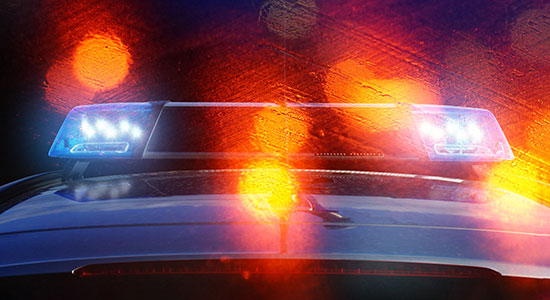
I write in response to Executive Director Larry Martin’s request for State Bar of Wisconsin members to do something in response to the evolving problem of law enforcement’s inappropriate use of force against citizens. (“Racial Equity: It’s Time to Step Up,” Wisconsin Lawyer, July/August 2020.)
We are living in times of unrest and protest across the nation because of decades of law enforcement abuse, culminating most recently with the George Floyd case in Minnesota and the Jacob Blake case in Wisconsin. Sadly, had it not been for video footage taken by bystanders, these incidents may have gone undetected or underreported.
The issue at hand for the State Bar and its members is, where does responsibility for excessive use of force by law enforcement lie? Who is the final repository of power sitting in a position to effectively address the problem? I suggest that the answer is the trial and appellate courts.
Courts Should Hold Police Accountable for Excessive Force
Astute criminal defense attorneys recognize that good law enforcement personnel are tremendously valuable. I have known many. However, the badge carries with it the option of using force against the public. As such, the officers and their departments must be held accountable for their use of force. But it is readily apparent that defective police policy, abusive compliance holds, inadequate training, a flawed militaristic chain of command, and an “us against them” mentality fosters inappropriate uses of force against the public. These failings have directly led to incidents like those experienced by George Floyd, Jacob Blake, and their families.
I have practiced criminal law for 40 years. I have had more than 100 trials. I have conducted hundreds of suppression hearings. I have appeared before more than 30 judges. And I have had the benefit of practicing in front of some truly excellent trial judges.
However, many trial judges do not hold law enforcement accountable when law enforcement inflicts excessive force on the public. Although trial judges regularly advise juries that law enforcement does not get a “rung up” on the ladder of credibility, experience says that judges often do not apply this principle themselves. Often judges decide “credibility” based on the officer’s status as a law enforcement professional, ignoring the testimony of other witnesses as well as the burden of proof.
I and numerous other criminal defense attorneys have presented trial judges with testimonial and video evidence of excessive force by law enforcement. We have submitted evidence of defective police policies, racial profiling, boilerplate search warrants, and pretextual and inappropriately prolonged traffic stops. I and my criminal defense colleagues have been doing this for decades.
How Close Is Too Close?
Unfortunately, in rural Wisconsin counties, trial judges regularly engage in dialogue with law enforcement officers and form relationships with them. They also often meet with the heads of their departments, which tends to foster a “pro law enforcement” bias on the bench, and this bias is then applied in court proceedings and produces flawed results.
The best trial judges hold law enforcement accountable. They recognize the imbalance of power and resources that exists between the state and the accused. These judges value aggressive, competent, and outspoken defense attorneys because they understand that they are the group who protects the Constitution and the rights it grants to individual citizens.
Likewise, my experience has been that appellate courts often adopt a “pro law enforcement” stance, often seeking to save the state’s case by using doctrines like “harmless error,” “good faith” exceptions to the Fourth Amendment, and other judicially created means to ameliorate inappropriate law enforcement conduct.
Eliminate “Pro Law Enforcement” Bias to Restore Community Faith
When trial and appellate courts apply a “pro law enforcement” bias, not only do they reach the wrong decision in an individual case, they also embolden law enforcement to continue on in the same course of conduct that leads to cases such as those of George Floyd and Jacob Blake. And while it may be difficult for the courts to admit and eliminate their “pro law enforcement” bias, it is necessary that they do so. They have the power to hold law enforcement accountable, and by doing so, they may also go a long way toward restoring the community’s faith in law enforcement.
Cite to 94. Wis. Law. 34-36 (January 2021).
Meet Our Contributors
What is the best advice you have for new lawyers?
 If you are going to become a successful criminal defense attorney, then right from the get-go you need to litigate all evidentiary hearings and pursue jury trials on your cases. Preparation and practice drive success. Become an expert on the rules of evidence with all of their nuances. Figure out the defense or story and garner the facts and evidence to support your closing argument. Be confident. Be wary of plea bargains. Surround yourself with other litigators and attend seminars taught by litigators.
If you are going to become a successful criminal defense attorney, then right from the get-go you need to litigate all evidentiary hearings and pursue jury trials on your cases. Preparation and practice drive success. Become an expert on the rules of evidence with all of their nuances. Figure out the defense or story and garner the facts and evidence to support your closing argument. Be confident. Be wary of plea bargains. Surround yourself with other litigators and attend seminars taught by litigators.
Respect is earned and your reputation precedes you. Figure out what you do not know. All excellent experts and trial attorneys will help you. Good luck and have fun.
John A. Kucinski, Hudson, WI.
Become a contributor! Are you working on an interesting case? Have a practice tip to share? There are several ways to contribute to Wisconsin Lawyer. To discuss a topic idea, contact Managing Editor Karlé Lester at (800) 444-9404, ext. 6127, or email klester@wisbar.org. Check out our writing and submission guidelines.
